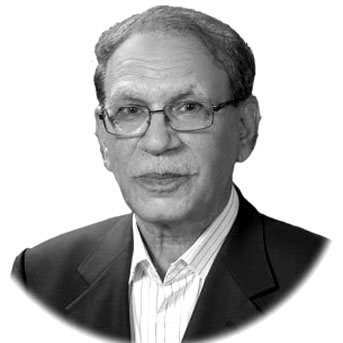Mohammad Jamil
NATIONAL Register of Citizens (NRC) is discriminatory in nature, as Muslims who are born in India; possess school certificate, identity card, passport, driving licence and ration card are denied citizenship. On the other hand, Hindus born in Bangladesh and elsewhere are granted citizenship without any of the above documents because they are Hindus. Clashes erupted between students and the police in the Indian capital of New Delhi over a contentious new citizenship law, which critics say is “anti-Muslim” and violates India’s secular constitution. Scores of students were detained and taken away in police vehicles, witnesses said. The protests became violent when police fired at the protestors point blank killing some of them. Meanwhile six Chief Ministers of Kerala, Punjab, Madhya Pradesh, Chhattisgarh, Maharashtra and West Bengal have declared that they will not be implementing the Citizenship Amendment Act, 2019 in their States. Thus India could fall apart due to Modi’s policies.
The controversial legislation was cleared by Parliament last week and approved by India’s President Ram Nath Kovind a day later, despite widespread criticism by legal experts. A Jamiat Ulema-e-Hind spokesman said that the organization held protests in multiple cities including Aligarh, Hyderabad, Kolkata, Ahmedabad, Patna, Bengaluru and Jaipur. Manisha Sethi, a professor at Jamia Millia Islamia University said the whole idea behind the law is of a Hindu nation as imagined by India’s far-right ideologues. The new citizenship law had already triggered protests in the northeastern Assam state, where demonstrators said it would convert thousands of undocumented immigrants into legal residents. On Thursday, at least two people were killed in Assam when police opened fire on mobs torching buildings and attacking railway stations in protest against the rules. Four people were killed in Guwahati by the firing of Indian security forces.
Meanwhile, the United Nations Human Rights Office on Friday voiced concern that the citizenship law is “fundamentally discriminatory in nature” and called for it to be reviewed. The new law does not extend the same protection to Muslim migrants as to other religious minorities, thereby undermining India’s commitment to equality before the law, enshrined in the Constitution, UN Human Rights spokesman Jeremy Laurence said. With the internet suspended in many areas of the city, several thousand people gathered for a sit-in protest on Friday. Authorities in Meghalaya, another north-eastern state, cut off mobile Internet and imposed a curfew in parts of the capital Shillong. Around 20 people were hurt in clashes there on Friday, reports said. The Citizenship Amendment Bill (CAB) approved last week allows for the fast-tracking of applications from religious minorities from Pakistan, Afghanistan and Bangladesh, but not Muslims.
After revoking Articles 370 and 35-A of Indian Constitution that had given special status to Jammu and Kashmir, the final Assam citizens’ list was released, leaving out more than 1.9 million Muslims. After the abolition of Article 370 of the Constitution, 10 other states Arunachal Pradesh, Assam, Himachal Pradesh, Manipur, Meghalaya, Mizoram, Nagaland, Sikkim, Tripura and Uttarakhand that enjoy special category distrust the Indian government because of Modi’s actions. It has to be mentioned that special category status was granted to them by the National Development Council on the recommendations of the Planning Commission to States that needed special consideration. But Modi is playing with fire. Some of the significant separatist movements in India include Naxalites or Maoists, which is second major freedom movement after IOK in India. Maoists inhabit an area known as the ‘Red Corridor’ that stretches from West Bengal to Karnataka state in the southwest..
Tamil Nadu is another area where separatist movements are haunting federation of India. In the wake of their defeat by the Sri Lankan military in the Jaffna peninsula, the Tamil LTTE freedom fighters took refuge in the adjoining Tamil Nadu State of India, where on account of common ethnicity, religion, language and culture they mixed easily and enjoyed mass support for their cause. Overtime, LTTE had regrouped and recruited volunteers from amongst the Sri Lankan Tamil refugees and the local population and began to amass weapons and explosives. There is a strong anti-India and pro-secessionist sentiment in Tamil Nadu. Most people want independence from India despite sharing a common religion, Hinduism due to Indian government, and especially fascist methods of PM Narendra Modi. Northern States feel that Modi could strip those states off special status, and could ride a rough shod over them.
Nagaland, which has had an uneasy relationship with the mainland, is weary of National Democratic Alliance (NDA) promises because of the Naga Peace Accord 2015, held up by slow progress of talks and the controversial Citizenship (Amendment) Bill 2016. However, the writ of the government is said to be confined to state capital Kohima; and the rebels have parallel administration in Nagaland and the Naga-dominated areas in neighboring Manipur, Arunachal Pradesh and Assam. Rebel groups have for several decades imposed taxes and collected donations in the name of “national work”, and even resolve family and farmland disputes. The most volatile state after the Union Government’s moves in Jammu and Kashmir is Nagaland, which was given special provision under Article 371-A, which was inserted following the creation of the State of Nagaland. Anyhow, Modi’s policies could cause immense damage to the unity of India, as there are widespread protests in many parts of India.
—The writer is a senior journalist based in Lahore.










